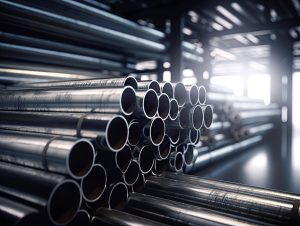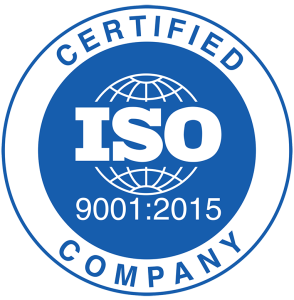Every industry will use instrumentation in one form or another. It is vital for process control, including measuring and monitoring. The instruments comes in an array of shapes and sizes to look at things like pressure, flow speed, current, weight, and temperature. Many systems rely on metal tubing as part of the systems too. We want to have a closer look at that today. Then, if you need ERW steel tubes in the West Midlands, you can speak to us.
The right choice
It is crucial to select the right instrumentation tubing. To maximise safety and performance, the tubes must be consistent as well as reliable. The goal should be to make sure there won’t be any leaks. That will ensure system integrity.
There are a number of crucial things you need to look at here when you decide on instrumentation tubing. We will go over them to give you a better idea of what to consider.
Compatibility
 Firstly, you need to look at the compatibility of the materials. Instrumentation and things like fixtures and fittings can be made of a variety of substances. For example, it could be stainless steel, titanium, or specialist alloys. You need to ensure the tube material is compatible with them. Mixing materials is often a bad idea because it can lead to serious issues like corrosion.
Firstly, you need to look at the compatibility of the materials. Instrumentation and things like fixtures and fittings can be made of a variety of substances. For example, it could be stainless steel, titanium, or specialist alloys. You need to ensure the tube material is compatible with them. Mixing materials is often a bad idea because it can lead to serious issues like corrosion.
You also have to make sure the tube will be compatible with the operating conditions. For example, if you are processing corrosive media, it would be incredibly dangerous to choose a tubing material that is vulnerable to it. Instead you would be best with something that can resist it like stainless steel. Always consider what media you are dealing with and things like operating temperature. If you need ERW steel tubes in the West Midlands, come to us.
Hardness
The second crucial thing to look at is the hardness. This affects a number of things, including how the material will resist deformation and wear. So, you need to have as accurate an idea of the hardness as possible.
A good rule here is to choose a tube material that is slightly softer than the instrument and fittings. This will mean it can deform slightly if necessary, reducing the risk of leaks. Plus, if the material is harder, the instrument or fitting could cause premature wear.
Wall thickness
Next you must ensure the tubes have a sufficient wall thickness. It is a vital factor for pressure applications. If the walls are too thin, the pressure inside can result in deformation, leaks, and failure. You can come to us for ERW steel tubes in the West Midlands and choose different thicknesses.
Generally it is relatively simple to decide what thickness you need. Most instrument and fitting manufacturers will specify what to use. You simply need to follow their guidelines. Make sure where possible the thicknesses they suggest have been verified with sufficient testing. Most importantly, make sure you are honest with operating conditions.
It can also be a good idea to specify thicker tubes for gas systems. There will be less radial movement with them, ensuring a tighter seal and less risk of leaks.
Temperature
Finally, you must consider the operating temperature. This will have an impact on the working pressure. As a result, you need to apply a de-rating factor to reflect it. It will differ depending on the material and temperature. Most crucially, never pressurise tubing beyond the manufacturer’s recommended working pressure.
Get reliable ERW steel tubes in the West Midlands
The most important thing you can take away here is that the right tubing plus the right fitting and instrumentation will maximise integrity. Make sure you think carefully about what you choose.
Union Steel Tubes is a reliable supplier if you need ERW steel tubes in the West Midlands. We can offer products for a massive array of needs, including instrumentation systems. You can even choose seamless tube if the operating conditions call for it.
So, speak to us if you need tubing.


